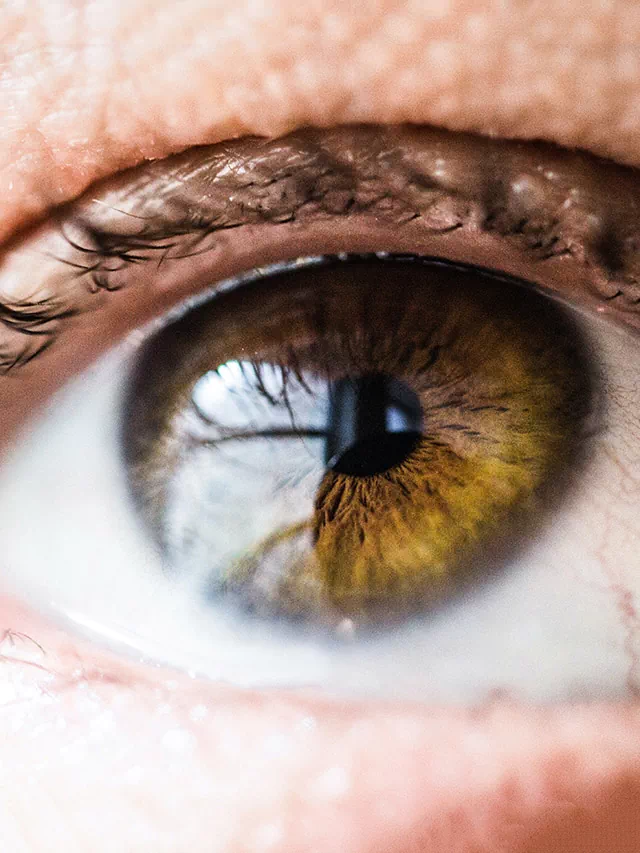It depends on the underlying cause of the blurry vision. If the cause is related to dry eyes or eye strain, then eye drops may be able to improve the symptoms and alleviate the blurriness. However, if the blurry vision is caused by a more serious condition such as cataracts or glaucoma, eye drops alone may not be enough to cure it and other treatments may be necessary. It is always best to consult with an eye doctor to determine the underlying cause of the blurry vision and the appropriate treatment options.
What does blurred vision mean?
Blurred vision refers to a loss of sharpness or clarity in vision, resulting in difficulty seeing fine details or distinguishing between objects. Blurred vision can affect one or both eyes, and it may occur suddenly or develop gradually over time. The blurriness may be mild or severe and may be accompanied by other symptoms such as eye pain, redness, sensitivity to light, or headache. Blurred vision can be caused by a variety of factors, including refractive errors like nearsightedness, farsightedness, and astigmatism, as well as more serious conditions such as cataracts, glaucoma, macular degeneration, diabetic retinopathy, and neurological disorders. It is important to see an eye doctor if you experience persistent or worsening blurred vision to determine the underlying cause and receive appropriate treatment.
What are the causes of blurred vision?
There can be many causes of blurred vision. Examples of common causes are:
- refractive errors, such as near-sightedness, far-sightedness, or astigmatism
- abrasions to the cornea
- age-related macular degeneration
- cataracts
- corneal opacification, or scarring
- infectious retinitis
- migraine
- optic neuritis
- retinopathy, such as diabetic retinopathy
- stroke
- trauma or injury to the eyes
People with diabetes can also experience blurred vision if their blood sugar levels fluctuate significantly.
When do I seek medical help for blurred vision?
You should call 911 or your local emergency services and get immediate medical attention if your blurred vision comes on suddenly and you have any of these symptoms:
- severe headache
- difficulty speaking
- loss of muscle control on one side of your body
- facial drooping
- trouble seeing
These symptoms are similar to those of stroke. Additional symptoms that may need immediate treatment include severe eye pain or sudden vision loss. Vision that slowly worsens or other symptoms of blurred vision may require a visit to your primary care doctor or eye care specialist. If you don’t already have a primary care doctor or eye care specialist, you can browse doctors in your area through the Healthline FindCare tool.
How is blurred vision diagnosed?
Your doctor will diagnose the cause of your blurred vision by first taking an inventory of your symptoms. Examples of questions they may ask include:
- When did you first start noticing the blurred vision?
- What makes the blurred vision worse or better?
They may also ask about your personal medical history as well as a family history of eye conditions.
Eye tests
Your doctor may next want to perform a physical examination of your eyes. They may test your vision by asking you to read an eye chart. They might also perform other eye tests, such as:
- ophthalmoscopy
- refraction test
- slit lamp examination
- tonometry, which measures intraocular pressure
Blood tests
Your doctor might also perform blood testing. Blood tests may be used to help them determine whether bacteria are in the blood. They can also use tests to obtain your white blood cell count (WBC) if they suspect there could be an infection.
How is blurred vision treated?
When blurred vision is the result of a decrease in blood sugar, treatments include consuming foods high in fast-acting sugars. This includes juice and candies. You can also take glucose tablets that will increase your blood sugar quickly. Other treatments for blurred vision can depend on the condition that’s causing your symptoms. They can include eye drops, laser surgeries, or medications to control the underlying conditions.
How is blurred vision prevented?
While it’s not always possible to prevent some causes of blurred vision, taking steps to care for your eyes can help prevent lifestyle-related causes.
Here are some tips for healthy vision:
- Always wear sunglasses that provide broad-spectrum protection when you’re going out in the sun.
- Eat a diet rich in eye-healthy nutrients. The antioxidant lutein can be found in dark, leafy green such as spinach and kale. Foods high in omega-3 fatty acids include albacore tuna, trout, and halibut. Get vitamin A from sources such as carrots, sweet potatoes, and liver.
- Don’t smoke.
- Undergo regular comprehensive eye exams, especially if someone in your family has a history of an eye disease.
- Wash your hands before putting on or taking out contact lenses to reduce infection risk.
- Wear protective eyewear when operating heavy machinery or engaging in activities such as painting and home repairs.
While eye drops can be a useful tool in treating certain eye conditions, they cannot cure blurry vision. Blurry vision can have a variety of causes, such as refractive errors, dry eyes, or underlying medical conditions, and the appropriate treatment will depend on the underlying cause. In some cases, prescription eyeglasses or contact lenses may be necessary to correct vision, while in other cases, medical treatment may be required. It is important to consult with an eye care professional to determine the underlying cause of blurry vision and to develop an appropriate treatment plan.




